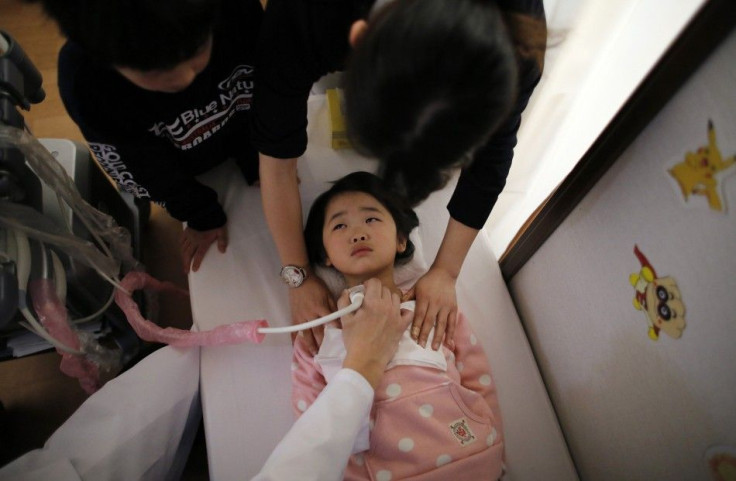Fukushima 3 Years After: Thyroid Cancer Cases Among Children Rising

Cases of thyroid cancer among children residing in Fukushima have grown steadily since the disastrous March 2011 incident. Citizens have all but lost hope and confidence in their government. And three years after, no one has been made accountable for the supposed worst nuclear disaster since the 1986 Chernobyl.
To say that Fukushima's children have been robbed of their childhood and right to play and explore the outside world is an understatement.
"Some really, really want to play outside. They say they want to play in the sandbox and make mud pies. We have to tell them no, I'm sorry. Play in the sandbox inside instead," Mitsuhiro Hiraguri, director of the Emporium Kindergarten in Koriyama, located 55 km (35 miles) west of the Fukushima nuclear plant, told Reuters.
Doctors have seen a rising number in the cases thyroid cancer in children and young adults in Fukushima. In February, the cases of thyroid cancer in individuals aged between 18 and below jumped to 75, where 33 were confirmed to have cancer.
On Sunday, thousands joined anti-nuclear protests to signify their loss of trust against the government as the latter moves to reignite the country's 50 idled nuclear reactors.
"I am here today because I want to rid the planet of nuclear power as quickly as possible," Fumiko Ichikawa, one of the Tokyo demonstrators, told euronews.
Read: Chaos in Tokyo After Prosecutors Drop Charges Over Fukushima Nuclear Meltdowns
On April, residents of Fukushima who left the immediately after the March 2011 disaster have been advised they may now return to the area because it is already safe. Many, however, don't want to go back.
Compared to the radiation levels emitted by the Chernobyl 30 years ago, those from Fukushima were low, according to Dillwyn Williams, Emeritus professor of Pathology at Cambridge University, because most had been blown over the Pacific Ocean.
But he cautioned authorities against complacency. "It is very unlikely there will be a large increase in thyroid cancer or any other health problems, apart from anxiety and psychological difficulties. That does not mean the surveillance should stop. There were surprises after Chernobyl and there may be again after Fukushima."
So far, 254,000 out of 375,000 Fukushima children have been tested for possible cancer ailments and will continue to be screened in their entire lifetime.
Read: Scientists Build Radiation Scanner Exclusive for Babies of Fukushima, Could It Help Save Their Future At All?
Children are also fearful of the effects of the invisible enemy that is radiation.
"There are children who are very fearful. They ask before they eat anything, 'does this have radiation in it?' and we have to tell them it's okay to eat," Mr Hiraguri said.
Parents remain wary. "I buy food from areas away from Fukushima. This is our normal life now," Ayumi Kaneta said. She has three sons.
Further to the rising number of thyroid cancer cases among Fukushima children is the seeming detrimental effect of keeping them inside homes.
"Compared to before the disaster, you can certainly see a fall in the results of physical strength and ability tests - things like grip strength, running and throwing balls," Toshiaki Yabe from the Koriyama city government said.
"There's a lot more children who aren't all that alert in their response to things. They aren't motivated to do anything," he said.





















